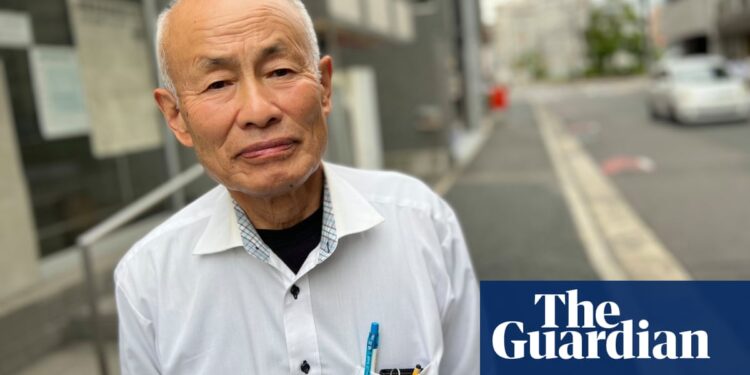Survivors of the atomic bombings of Japan almost eight decades ago have won the Nobel peace prize for their campaign to rid the world of nuclear weapons.
The Japan Confederation of A-Bomb and H-Bomb Sufferers’ Organisations – commonly known as Hidankyo – received the accolade one year before the 80th anniversary of the bombings of Hiroshima and Nagasaki, and at a time of growing concern about the possible use of nuclear weapons.
The Nobel committee said it had decided to award the prize to Hidankyo “for its efforts to achieve a world free of nuclear weapons and for demonstrating through witness testimony that nuclear weapons must never be used again”.
The Norwegian committee said testimony by hibakusha – survivors of the August 1945 bombings by the US – had “helped to generate and consolidate widespread opposition to nuclear weapons around the world by drawing on personal stories, creating educational campaigns based on their own experience, and issuing urgent warnings against the spread and use of nuclear weapons”.
It added: “The hibakusha help us to describe the indescribable, to think the unthinkable, and to somehow grasp the incomprehensible pain and suffering caused by nuclear weapons.”
While the committee noted that nuclear weapons had not been used since the end of the second world war, it said the “taboo” against their use was “under pressure”.
The Russian president, Vladimir Putin, has refused to rule out the use of tactical nuclear weapons against Ukraine, while North Korea has continued to develop nuclear weapons that some experts believe are capable of striking the US mainland.
Some will see the prize as a rebuke to Japan’s conservative government, which is dependent for its defence on the US nuclear umbrella and is not among the more than 60 countries that have ratified a 2021 treaty to ban the possession and use of nuclear weapons.
“At this moment in human history, it is worth reminding ourselves what nuclear weapons are: the most destructive weapons the world has ever seen,” the Nobel committee said.
Between 60,000 and 80,000 people died instantly after the Enola Gay, a US B-29 bomber, dropped a 15-kiloton nuclear bomb on Hiroshima on the morning of 6 August 1945, with the death toll rising to 140,000 by the end of the year. Three days later, the Americans dropped a plutonium bomb on Nagasaki, killing 74,000.
Today, the number of people officially recognised as having died from the effects of the bombings stands at 344,306 in Hiroshima and 198,785 in Nagasaki. The average age of the 114,000 survivors of the Hiroshima attack is around 84.
Hidankyo’s co-chair, Toshiyuki Mimaki, 81, told a news conference in Hiroshima that the group’s recognition would give a major boost to its efforts to demonstrate that the abolition of nuclear weapons was possible, Reuters and Agence France-Presse reported.
“It would be a great force to appeal to the world that the abolition of nuclear weapons can be achieved,” Mimaki said. “Nuclear weapons should absolutely be abolished.”
He said the idea that nuclear weapons brought peace was a fallacy. “It has been said that because of nuclear weapons, the world maintains peace. But nuclear weapons can be used by terrorists,” he said. “For example, if Russia uses them against Ukraine, Israel against Gaza, it won’t end there. Politicians should know these things.”






